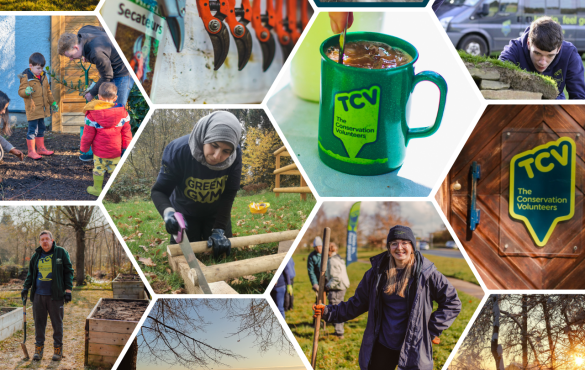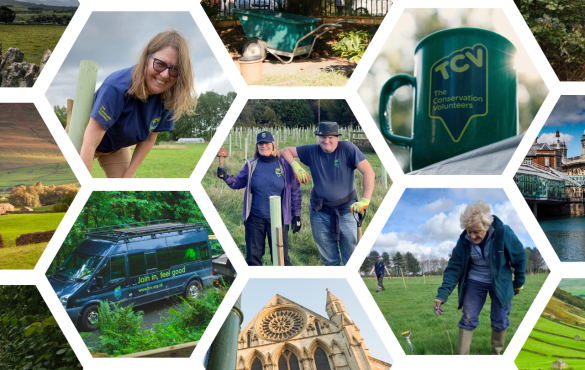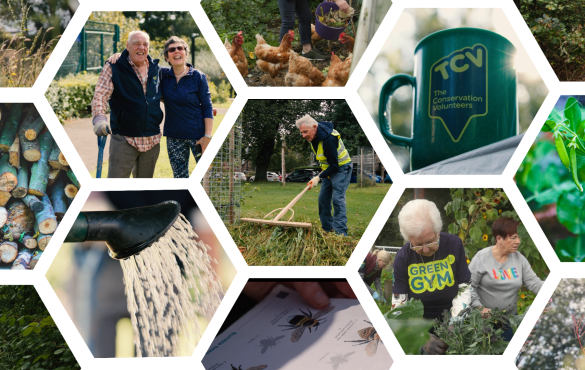By David Fineberg, TCV Project Officer
“Resilience – an ability to recover from or adjust easily to misfortune or change”
I look to the natural world to guide me in my response and understanding of the climate and ecological disaster we find ourselves within. One such example is resilience, and not just resilience itself, but the subtle and nuanced difference between resistance and resilience.
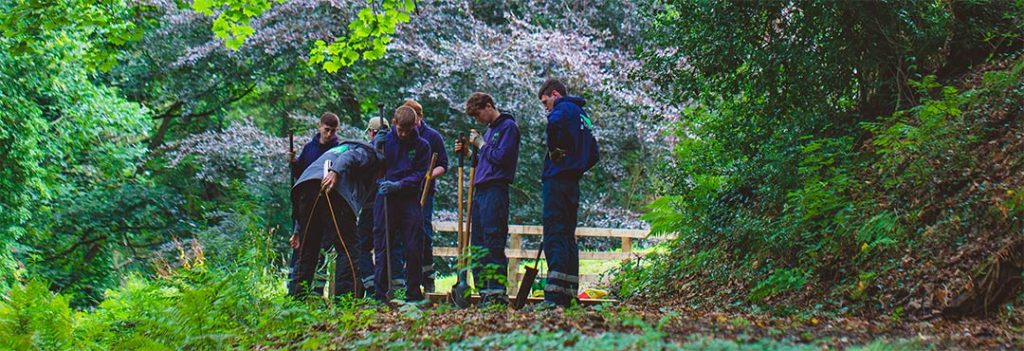
Take, for example, how nature deals with fire. There are trees resistant to fire, able to withstand flames against their trunks, and survive to live another day. The Pondersoa Pine is a fine example, with thick bark protecting it from the extreme heat of a fire.
So what would resilience look like? The Shortleaf pine, which can be burnt down to the ground, but with resilient roots that survive below the ground, are able to resprout and survive after the fire has extinguished. Or the Lodgepole pine, which have Serotinous cones, essentially glued shut with a strong resin, and it’s only when a fire comes along and melts this resin, the seeds are dispersed and spread by the wind. They go beyond resistance, and find a way not only to survive, but to reproduce after the fire.
Why do I bring this up? Because we can learn to be as resilient as possible in the face of climate catastrophes.
“Hope is not a lottery ticket you can sit on the sofa and clutch, feeling lucky. It is an axe you break down doors with in an emergency…to hope is to give yourself to the future – and that commitment to the future is what makes the present inhabitable.” – Rebecca Solnit
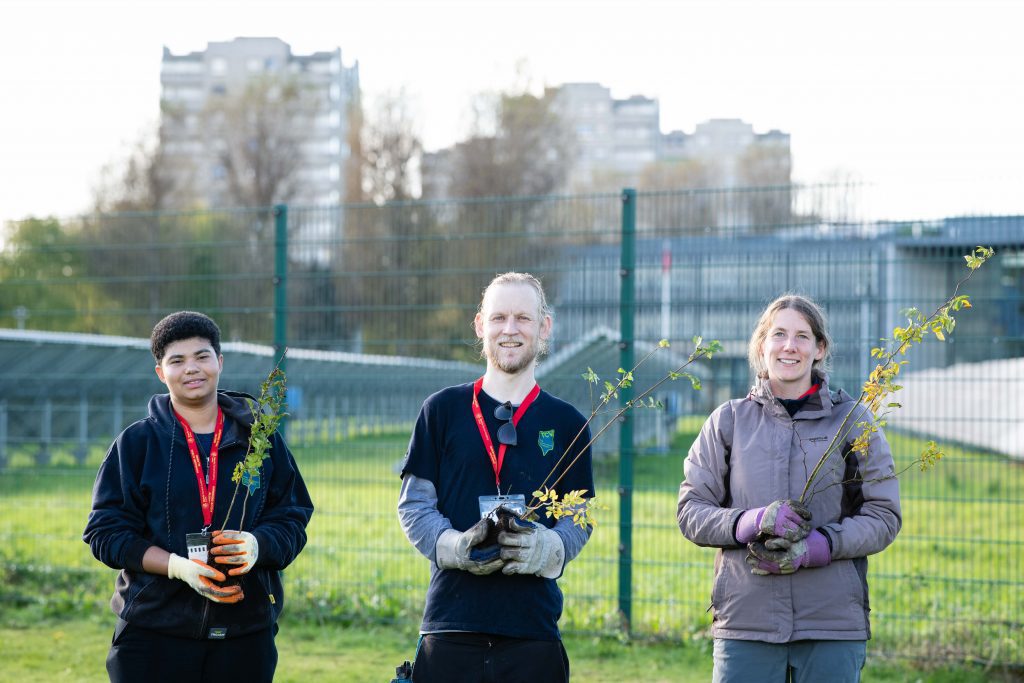
The constant newscycle about the issues we face can have a paralysing impact, stopping us in our tracks of taking action, when it can feel so inconsequential in the grand scheme of things. At The Conservation Volunteers, we look equally at the need to improve our natural world, and at how getting involved improves our collective wellbeing. The question I like to ask is, whatever your starting point, can you take one step further forward? Going beyond the resistance of just surviving the current news cycle, but of improving the natural landscape for ourselves and future generations.
- Do you have a small concrete patch outside your flat? Can you add some potted plants or trees? Something simple like Chives or Lavender in a pot are great for bees, or Garlic Mustard for butterflies.
- Do you own acres of land? Can you bring back wild native animals? Managed correctly, grazing animals can improve the biodiversity of an area. Beavers have recently been reintroduced to London for the first time in 400 years, and large herbivores can provoke wildflower growth.
- How much time do you spend immersed in nature? Can you spend more time in nature? Can you volunteer with a local gardening, “Friends of” or community group, or even set up your own?
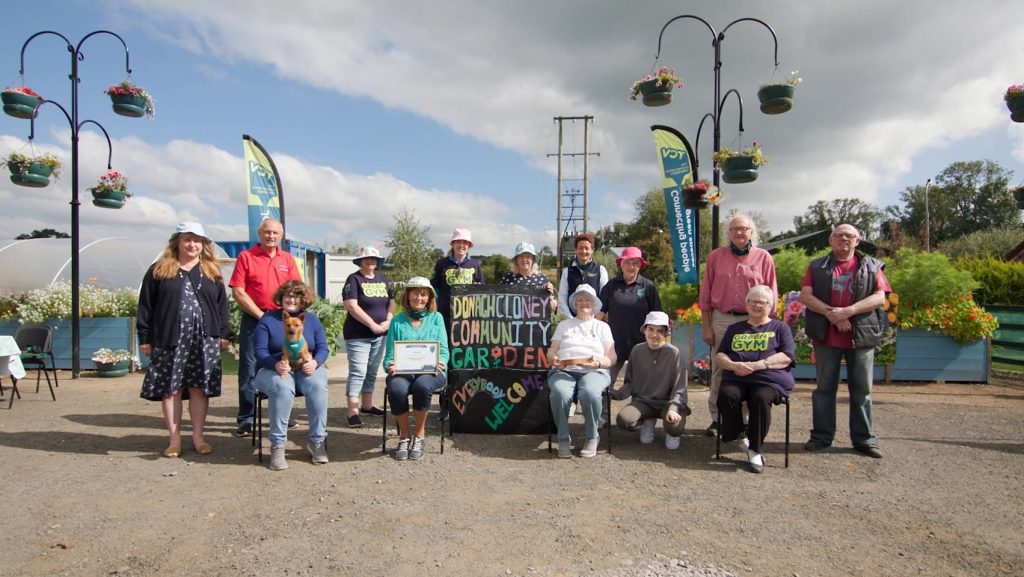
- Do you have a mown grass garden? Can you make it a wildflower meadow? In Spring you can plant Dropwort, Wild Daffodil and Wild Thyme, in summer you can plant Teasel, Yellow Rattle and Foxglove.
- Do you regularly walk through a local park or green space? Can you get involved with managing that landscape? Find out who owns or manages a space. Speak to them. Speak to your neighbours. Put pressure on them to change the management of the land to create and maintain increased biodiversity.
- Do you feel inclined to join a campaign group? Traditional groups such as Greenpeace, Friends of the Earth or the World Wildlife Fund, or more recent groups such as Extinction Rebellion, WildCardCampaign or Wild Justice.
Whatever your starting point, can you go one step further forward?
“Don’t be discouraged by people saying that actions are just a drop in the ocean. What’s an ocean except millions upon millions of drops? And if you’ve ever seen a stalactite or stalagmite, you’ll know small drops can produce spectacular results” – Isabel Losada
Volunteering isn’t just giving up your time for a good cause, environmental volunteering is repaying our earth for giving us a habitable environment, and the more we repay that by respecting our natural landscapes, the more resilient we become, and the more resilient nature becomes. We are not separate to nature, we ARE nature.
Join in, feel good at TCV
You can search your postcode on our website to find any community volunteering opportunities close to you, and you don’t need any experience! We provide all the training, tools and even a cup of tea. You can come once, you can come every now and then, you can join us every week. We also provide opportunities to become a Volunteer Officer with further training in First Aid and Leadership skills if you’re looking for a path into the conservation sector.
Perhaps you’re a landowner or land manager? We can discuss how to better manage your land, bringing volunteers with us, including the potential of larger corporate teams for specific tasks that can be completed in a day. We offer guidance on what can be achieved on your land, and how to achieve it.
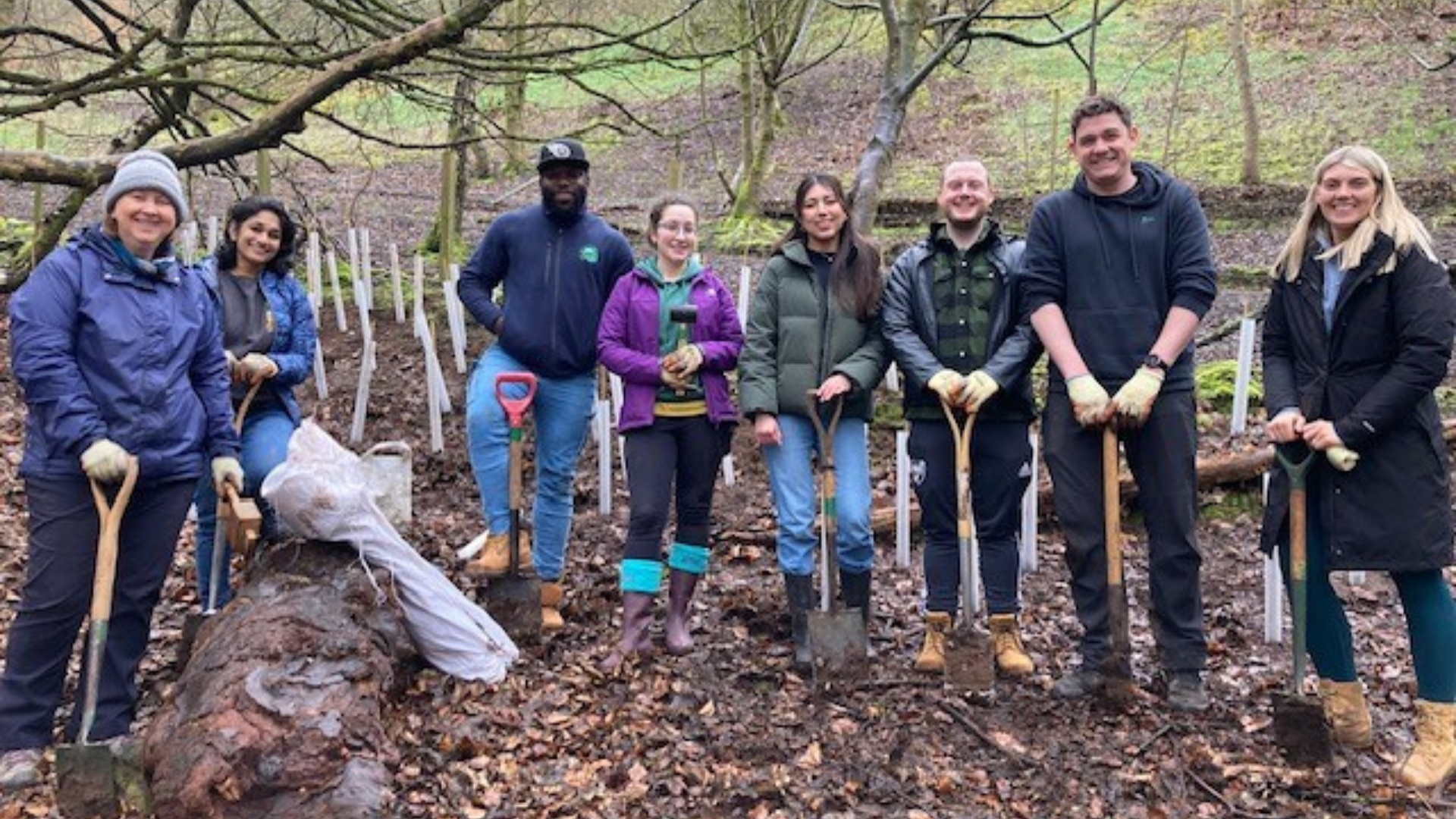
Like the Serotinous cone, let’s use the climate crisis to ignite a fire in our belly to not only resist the status quo, but to improve and regenerate the way we interact with the natural world, sowing the seeds for future generations to act with nature, and not against it.
Step one: get outdoors!
Step two: take one step further forward…
“For all the fear, distress and grief we feel in response to climate injustice, let yourself be moved and transformed by the reality that each and every one of us knows that this world is worth fighting for” – Tori Tsui
Search your postcode to find TCV volunteering opportunities – www.tcv.org.uk/find-tcv/
TCV Corporate Volunteering Days – www.tcv.org.uk/getinvolved/corporate-volunteering/
My recommendations:
Ted Talk: The three secrets of resilient people – https://youtu.be/NWH8N-BvhAw?si=-2r_ewyCD-3ILYoW (Video)
The Resilience Project UK – https://theresilienceproject.org.uk/ (Website)
It’s Not Just You, How to Navigate Eco-anxiety and the Climate Crisis – Tori Tsui (Book)
Nature is a Human Right – edited by Ellen Miles (Book)
System Change not Climate Change – edited by Martin Empson (Book)
The Joyful Environmentalist – Isabel Losada (Book)
The Good Ancestor – Roman Krznaric (Book)
Hope In The Dark: Untold Histories, Wild Possibilities – Rebecca Solnit (Book)
This is not a drill – Extinction Rebellion Handbook (Book)
No One is too small to make a difference – Greta Thunberg (Book)
Active Hope – Joanna Macy & Chris Johnstone (Book)
Keep up to date with the latest news and activities from The Conservation Volunteers by following us on Twitter, Facebook, LinkedIn and Instagram. You can also sign up to receive TCV’s Greenzine newsletter for more ways to get involved.

